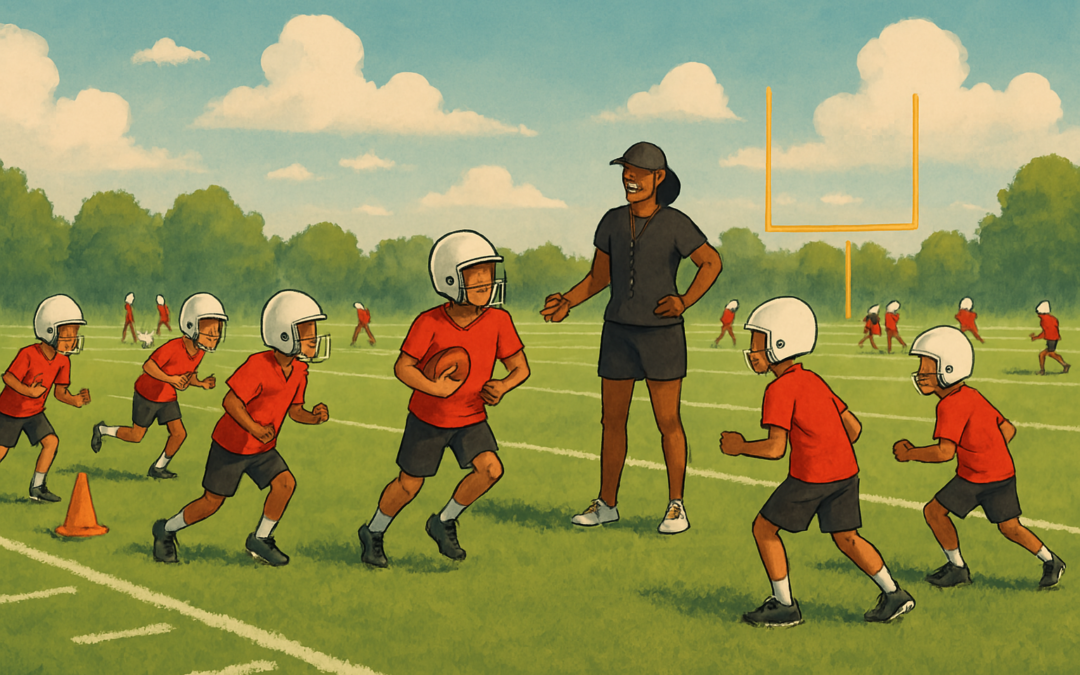How Football Camps Shape Young Athletes
By Demario McCall
Every young athlete dreams of making big plays, hearing the roar of the crowd, and maybe even playing on the biggest stage. But what many don’t realize is that becoming great at football—or any sport—starts long before the game lights come on. It starts with hard work, repetition, and guidance. That’s where football camps and training programs come in.
As someone who’s gone from grinding on the fields of North Ridgeville, Ohio to competing at the highest levels, I’ve seen firsthand the impact these experiences can have. That’s why I’m passionate about creating opportunities for young athletes to grow—physically, mentally, and emotionally—through camps and mentorship.
More Than Just Practice
Football camps aren’t just about running drills or doing push-ups until you drop. Sure, there’s hard work involved. But it’s structured work. Camps offer focused training that breaks the game down into its fundamentals: footwork, hand placement, route running, tackling technique, and more. It’s where good athletes become smarter, sharper, and more efficient.
Camps also introduce players to new coaching voices and techniques. When you’re exposed to different perspectives, you start to understand the game in a deeper way. And that’s what separates the good from the great.
Building Confidence Through Preparation
One of the biggest benefits of football camps is confidence. When a young athlete learns a new skill and sees themselves improve over a few days or weeks, it changes their whole outlook. They begin to believe in themselves. They start to see that with effort and guidance, anything is possible.
That belief doesn’t stop when they leave the field. It shows up in the classroom, in how they treat others, and in how they handle challenges. Sports have a powerful way of transferring life lessons—and training is the classroom.
Developing Discipline and Focus
Let’s be real—sports are about more than talent. Discipline, focus, and consistency are what take you to the next level. At a camp, kids learn to show up on time, give full effort, listen, and work with a team. These aren’t just athletic skills—they’re life skills.
For young players, learning how to stick to a schedule, stay locked in, and push through fatigue creates a foundation they’ll rely on for the rest of their lives. Whether they end up in the NFL or at a 9-to-5, these lessons stick.
Creating a Sense of Belonging
One of my favorite parts of hosting football camps is watching friendships form. Kids from different schools, backgrounds, and experiences come together through the love of the game. They encourage each other, compete with each other, and grow together.
For many young athletes, these moments are the first time they truly feel like they’re part of something. That sense of brotherhood (and sisterhood!) can be life-changing.
Keeping Kids Active and Engaged
Let’s face it—today’s world offers a lot of distractions. Camps provide structure and a positive outlet during the summer and offseason. Instead of sitting inside glued to screens, kids are outside moving, learning, and getting better.
And let’s not forget—football is fun! There’s nothing like that feeling of catching a pass, making a tackle, or just being out on the field with your squad.
Final Thoughts
At the end of the day, football camps are about more than creating better players—they’re about building better people. I’ve seen kids walk into camp shy, uncertain, and unsure of their abilities. By the end, they’re confident, energized, and ready to take on whatever’s next.
That’s what this work is all about.
If you’re a parent, coach, or young athlete reading this, I encourage you to get involved. Whether you attend a Demario McCall football camp or find one in your area, it could be the experience that changes your life. Because when you invest in yourself and your craft, the sky’s the limit.

